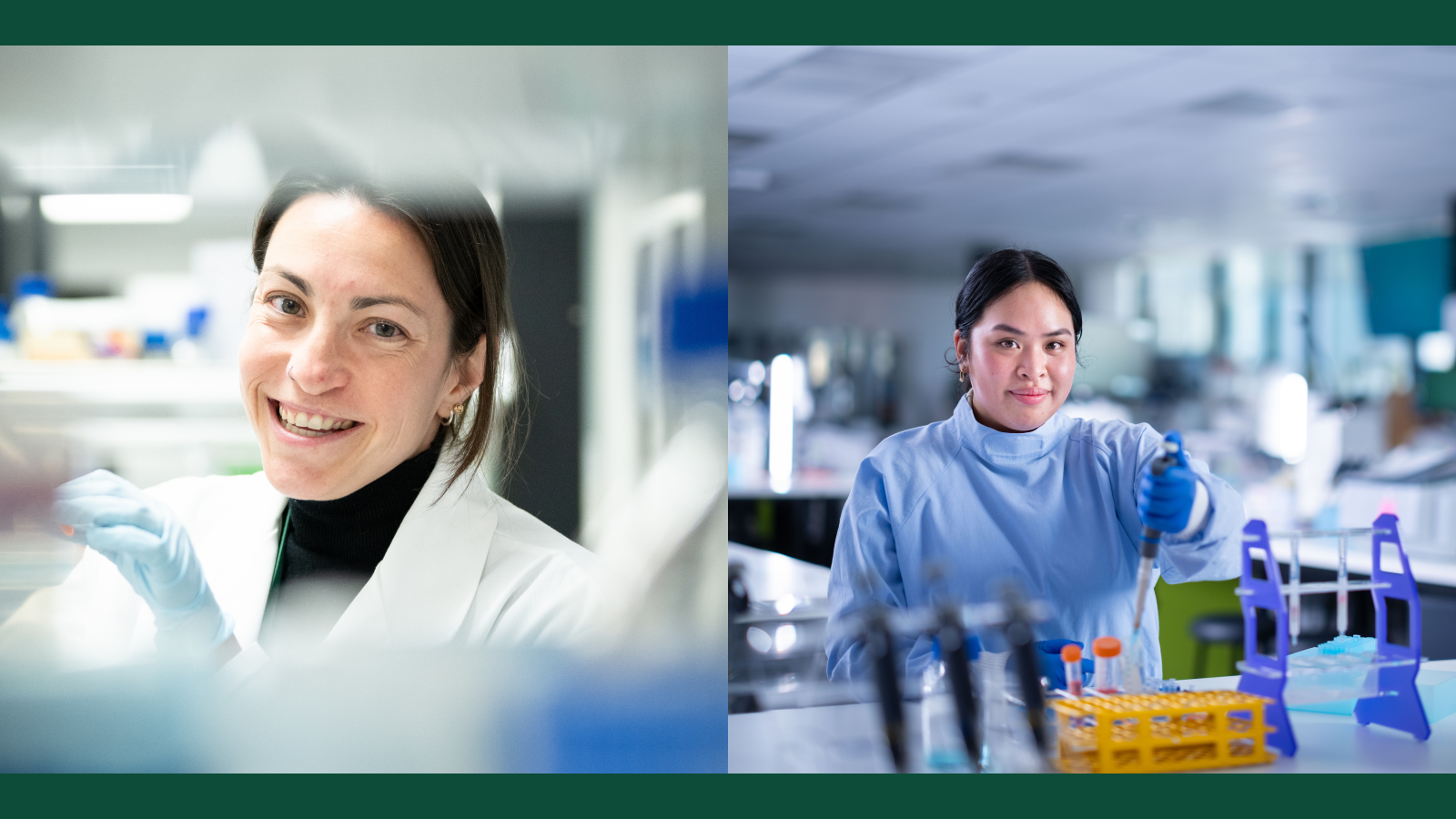Research into ovarian cancer detection gets a funding boost
Two projects investigating biomarkers for detection of ovarian cancer are among the latest research given a funding boost from the Cancer Society of New Zealand.

Three Post-Doctoral Fellowships and one PhD Scholarship have today been announced as part of the Cancer Society’s 2024 National Research Grant Round.
Te Herenga Waka—Victoria University of Wellington researchers Dr Sarah Sczelecki and Sonesavanh Larnkham are both conducting research to help advance detection of ovarian cancer.
Ovarian cancer has the highest mortality rate of all gynaecological cancers in Aotearoa. Early diagnosis dramatically improves the survival rates.
Their research will build on the exciting results from the Pitman group at Te Herenga Waka that identified five potential biomarkers of early-stage ovarian cancer. They hope to identify the first screening panel of ovarian cancer biomarkers that may be used diagnostically for early detection, enabling prompt treatment, and increased five-year survival rates.
“Our research is trying to identify early markers that can then be put into a screening platform,” said Dr Sczelecki. “In addition to that, we are looking at what non-invasive tools we can use for screening. For example, we are investigating whether we can use vaginal self-swabs, which are currently being used in the cervical screening programme, for ovarian cancer screening.”
The Cancer Society grant will also support Dr Sczelecki to travel and spend time in the laboratory of one of Britain’s foremost specialists in gynaecological cancer, Professor Usha Menon at University College in London.
“Having the opportunity to make international connections with Professor Menon’s group will be an invaluable experience. Their expertise in ovarian cancer diagnostics and screening will have a positive impact on the ovarian cancer research we are developing in Aotearoa.”
Sonesavanh has a strong personal connection to the research topic, having had an “extensive history” of ovarian health issues.
“I know first-hand the toll it takes to not know what is wrong with your body and why. Unfortunately, I am but one of many women who experience this, including those who have to jump hurdles to obtain an ovarian cancer diagnosis. The unfortunate thing about that is that ovarian cancer is treatable and survivable in the early stages, however it is often diagnosed late due to limited knowledge of symptoms. My passion for improving the knowledge pool for ovarian health issues and treatment is what drives me to do this research.”
Post-Doctoral Fellowships have also been awarded to Dr Citra Praditi and Dr Annika Seddon from the University of Otago, Christchurch. Dr Praditi is looking to advance studies into the role of vitamin C (ascorbate) in cancer, in particular understanding the role it could play as a complimentary melanoma therapy. Dr Praditi’s fellowship was funded by the MJ Allen Estate, a bequest received by the Cancer Society Central Districts Division. Dr Seddon hopes her study of malfunctioning mitochondria (the tiny power stations in a cell), will lead to new and better ways to treat acute myeloid leukaemia.
Cancer Society of New Zealand Research Manager Dr Nicole Stanton said there was a huge number of high-quality applications submitted this year.
“It’s awesome we’ve been able to support a range of projects and people. I’m particularly excited to see more funding going into ovarian cancer research, which is historically under-studied.”
Detailed summaries of this year’s funding projects and fellowships are available online.
